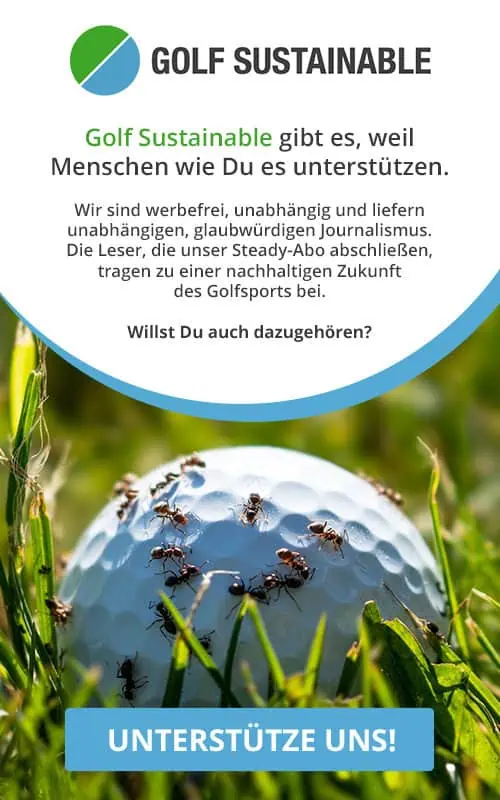Her focus has sharpened with her new role: Sára Kousková, two-time tour winner on the LET in the season to date, has also been working with GEO, the largest non-profit organization in golf that focuses on sustainability, since the beginning of the year. The 26-year-old herself has been an advocate of the topic in her sport for years.
With the official GEO cooperation and her successes on the Ladies European Tour, which also earned her qualification for the Amundi Evian Championship, her visibility for fans and the media has grown. One more chance to draw attention to the issue of sustainability? “Definitely,” she says, “although I’m already annoying people on the LET with my constant comments and making small changes.”
The young Czech has a critical view of the tournament scene in women’s professional golf. “Some of the tournament organizers are really trying to change things, others just don’t care.” She found the Dutch Ladies Open, which is considered exemplary in terms of sustainable event management in women’s golf, to be a positive example this year. However, she believes that communication with the players themselves could also be improved here. “Many of the information signs on the course were written in Dutch, so I didn’t understand anything, for example.”
The main target of communication at events is usually the visitor, but in fact the players themselves contribute significantly to the footprint at an event, especially through their travel behaviour. Last year, Kouskova generated 36 tons of CO2 emissions. “That’s actually a lot, too much,” she says. But the issue of mobility remains the biggest problem for professional athletes, even though the Ladies European Tour provided a bus for the journey from the Amundi Czech Ladies Challenge to the Amundi German Masters in Hamburg, for example. There, the player shuttle at least worked with an electric bus.
Kouskova offsets her annual emissions through two projects, one of which involves planting trees and the other supporting women with environmentally friendly ovens for cooking. “Offsetting emissions costs less than I thought,” the Czech thinks aloud and talks about the projects she would like to initiate on the Ladies European Tour, but which don’t work. “Sometimes it’s really small things, like separating waste for example, but you just run into a wall,” she sums up. Other aspects are clearly improving: she has noticed that the single-use plastic bottles used during the tournament weeks have almost disappeared. This also applies to the Amundi Evian Championship. A small step, no question. But every step counts.









